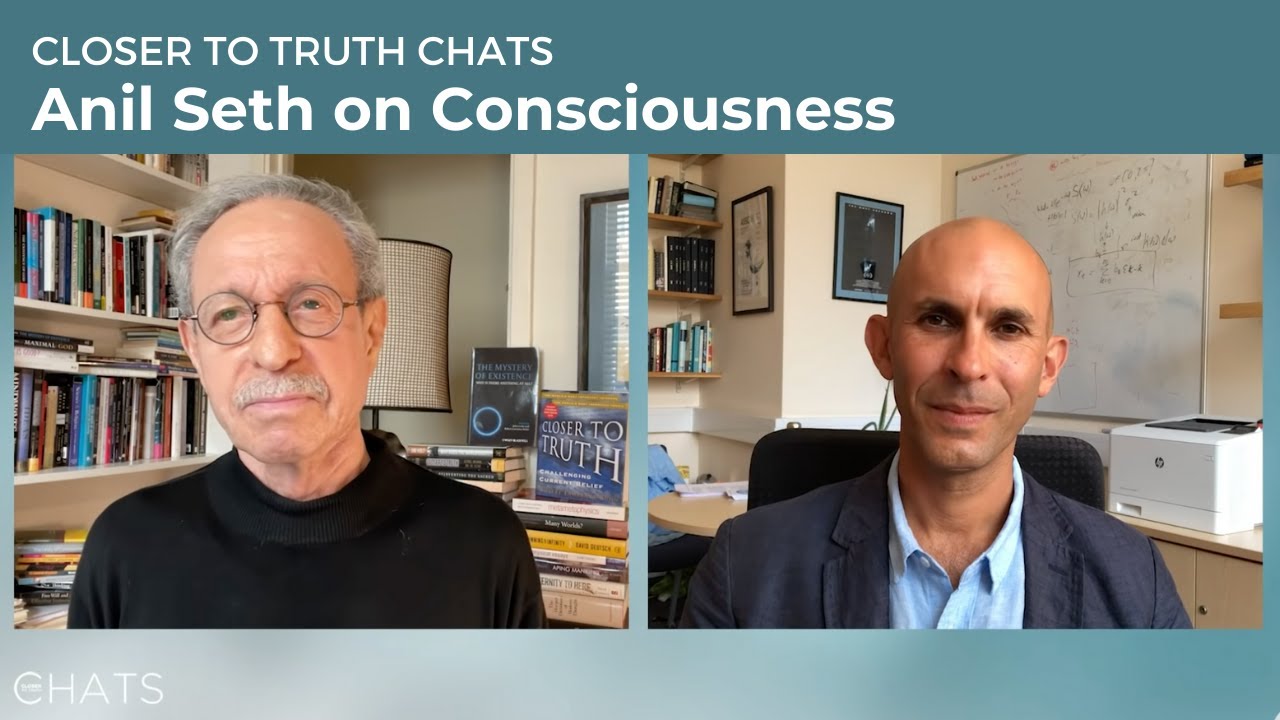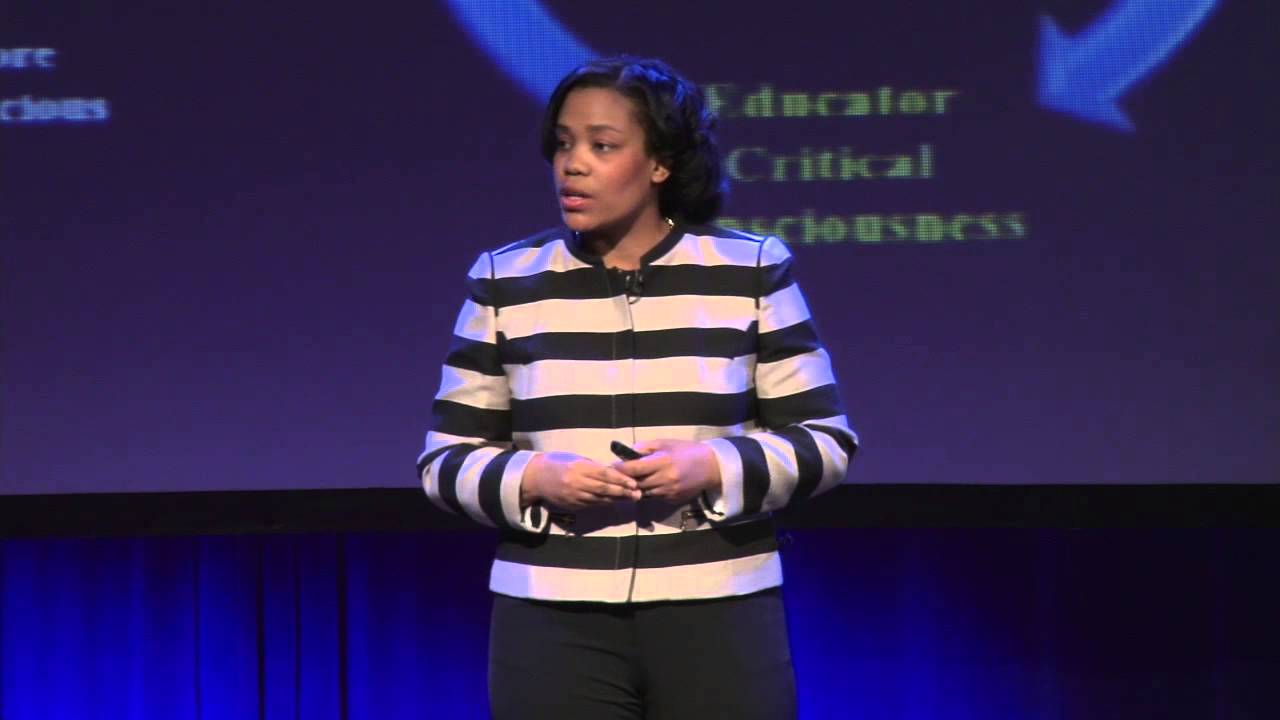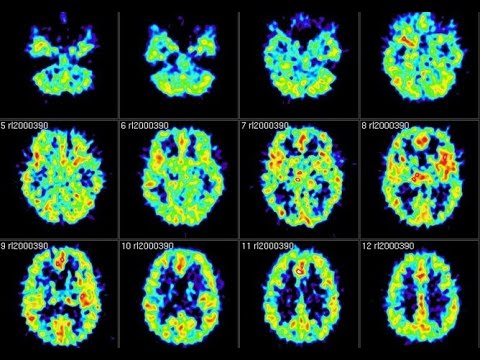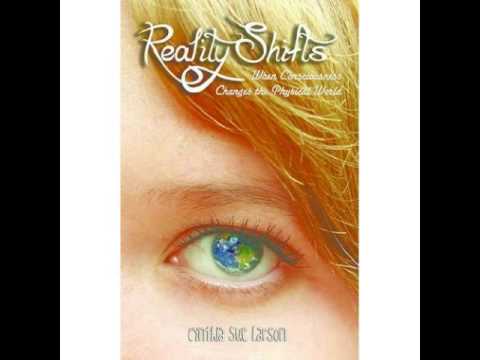Closer To Truth
Anil Seth, professor of Cognitive and Computational Neuroscience at the University of Sussex, discusses his new theory about how we experience the world and the self. He talks about the “real problem” of consciousness, measuring consciousness, and the brain as a Predictive Perception Machine.
Book tickets to Anil Seth’s talk with New Scientist on Thursday, Sep. 9 at 1 p.m. ET and use promo code CTT0909 to receive a 10% discount: https://www.newscientist.com/science-events/consciousness-2/
Seth’s book, Being You: A New Science of Consciousness, is available for purchase in the UK and the US: https://amzn.to/3jI9ss7
Anil Seth is Co-Director of the Sackler Centre for Consciousness Science at the University of Sussex. His research focuses on understanding the biological basis of consciousness by bringing together research across neuroscience, mathematics, computer science, psychology, philosophy and psychiatry.
Register for free at closertotruth.com for subscriber-only exclusives: http://bit.ly/2GXmFsP
Closer to Truth, hosted by Robert Lawrence Kuhn, presents the world’s greatest thinkers exploring humanity’s deepest questions. Discover fundamental issues of existence. Engage new and diverse ways of thinking. Appreciate intense debates. Share your own opinions. Seek your own answers.
© 2021 Closer To Truth
Source




This is the most dumbest and smugest neuroscientist I ever saw.
I unsubscribe from your channel for interviewing this materialist smug, I had enough.
The self is not the thing that does the perceiving. It is a perception, a collective of multiple levels of different perceptions. It is not a single indivisible thing. It seems that for him this perception called the self or the illusion of a Self, is a mechanism of survival, that perception that provides the continuity that allows us to be functional in time and space, in what we named reality. The self (a perception ) is a collection of perceptions on multiple levels. In my primitive mind, consciousness is a mental state of awareness of that perception called self in its integrated multiple levels of perceptions based on our physical structures, capable of perceiving and creating what we consider to be reality. I will continue learning to improve my knowledge about the Cosmos, Consciousness and God.
Mr Kuhn's interviews of Profs Chomsky and Penrose throw more light on the riddle of "consciousness". 🙂
No brain, no consciousness. I've seen brains without consciousness but never consciousness without a brain.
I think consciousness is a form of information processing, but so far as we know, it seems to be a substrate-dependent form of information processing. Also "there doesn't appear to be any bright line [or] clear distinction between where the wetware stops and where the mindware starts"…as someone who has spent the last several years researching spatial attention in mice this resonates very strongly. Anil Seth is a treasure. I do think the study of consciousness should focus more on the study of attention though. When are we more conscious of something than when we are paying attention to it?
May be microbiome is our consciousness..i think our microbiome verify our sensory data .. for right food , right environment to live and thrive ..
In Dialog closer to truth, what a brilliant concept!
As a young student who was interested in pursuing neuroscience, I went to see a Christof Koch lecture at UC Berkeley 20 years ago. The room was so full I sat on the ground. It was fascinating! Back then, ONE description of consciousness was that it's an emergent property or phenomenon of the complex interactions between neurons and groups of neurons. I remember there were different ways of thinking of consciousness…. seems like there still might be!
The complete theory about consciousness and its different levels has been published in a pioneering way in my books The Unified Theory, Holomovimento > Espelho d'Alma since 2001 . Art Science Religion and Modern Physics
https://youtu.be/_82nnwx1OCc
If only you all could discern into Upanishads!
I enjoyed this conversation and what a relief Anil sees the glaring problems of functionalism! It was amusing when Roblert asks "What's new?" in regards to Anil's claim of a new science of consciousness. The answer – well its not new, its just a shift from correlation to explanation LOL! Again Robert asks the fundamental scientific inquiry question of 'what' is the thermometer of conscisousness? Anil's resoponse "That's the question, is there one?"
Anil is focusing on the scientific method – where any question can be asked (Why something is or How) for explanation, prediction control. However, this tends to fashion the 'truth' rather than discover it… The real problem is the hard problem What is consciousness, not why it is or how it is those questions can be approached after, assuming that conscioussness is not metaphysical…
Excellent I am listening you from Iran continue please and GOD bless you 🌺🌺🌺
great video 👍🏻
Thinking about consciousness is not same as being. These words would be different after nirvikalpa saadhi for sure which very few if any neuroscientist have been in.
Please buy a lapel mic to improve the audio for the host. The content is really great, but the audio makes it almost unlistenable.
Since when do experiences have "properties " ?
Why isn't it already obvious that consciousness is not a thing ? It is that by which things can be percieved as things. There is nothing to ne measured without the measurer.
Whenever there is something that humans cannot understand completely, many will leap to pseudoscientific solutions (consciousness is fundamental, etc.) instead of admitting that we just can't know yet.
If we assume predictive processing, we need to account for some prerequisite "perceptual model," from which we can predict then reference, or account for error in what we sense. This has many problems. Where is the representation and how is the representation generated before a set of sensations are referenced to it. This would require a complete model to make a prediction before a complete sensation, then processing to generate a perception. How would a brain (another assumption) do this in real time, and in reality which has a continuous flow of time. A model and a prediction and an accounting of error all assumes discrete and static time chunks of instants. This is simply booty how perceptions occur. We do not get snapshots of the world, and in theory it's impossible, see Zeno's paradox. Perceptions embed flow and continuity in time. A predictive processing model is simply computational abstractions without time. We can do better. Go check out Bergson, if you're interested.
We're using thought to understand thought. A dog chasing its tail.
What about Stuart Hammeroff and Roger Penrose's Theory of Superposition and Entanglement taking place in the Microtubules in the brain. It is a fascinating theory. What are your thoughts on this Theory?
See 18:00ff…
"Our science is anti intellectual by nature. All it does is MEASURE THINGS!"
–Nietzsche
Please interview Mark Solms!
I think its more like the body is a 3d physical machine, much like a radio that receives a portion of the field of consciousness which gives us a feeling of idividualism.
Imo, consciousness needs to be explained in terms of evolution and natural selection. At least as a start. For example, begin with how the simplest of organisms flinch away when touched. Or are drawn toward certain molecules in the environment that might give it nourishment.
Edit : Also one of the best interviews and guests in a long time. More like these would be great.
Seems like he’s frustrated by the hard problem and so wants to simply have faith that consciousness emerges from physical matter.
If you don’t like the problem, just move on. But to simply “dissolve” it axiomatically seems fruitless
22:00 that's a driving function/transfer function dynamic right there. The cingulate cortex builds a meaningful driving function every 10 or 20ms or so.
The human brain is able of intuition, which is like a quantum tunneling effect at macro level, taking shortcuts towards discovering and understanding the reality.
We're just biological machines with continuity of thought. Our consciousness is an extension of brain function. Our brain processes inputs in stimuli from our eyes, ears and other sensory inputs. The processing of these inputs is compared with memories and directives that we've formed over time in an effort largely to simply survive.